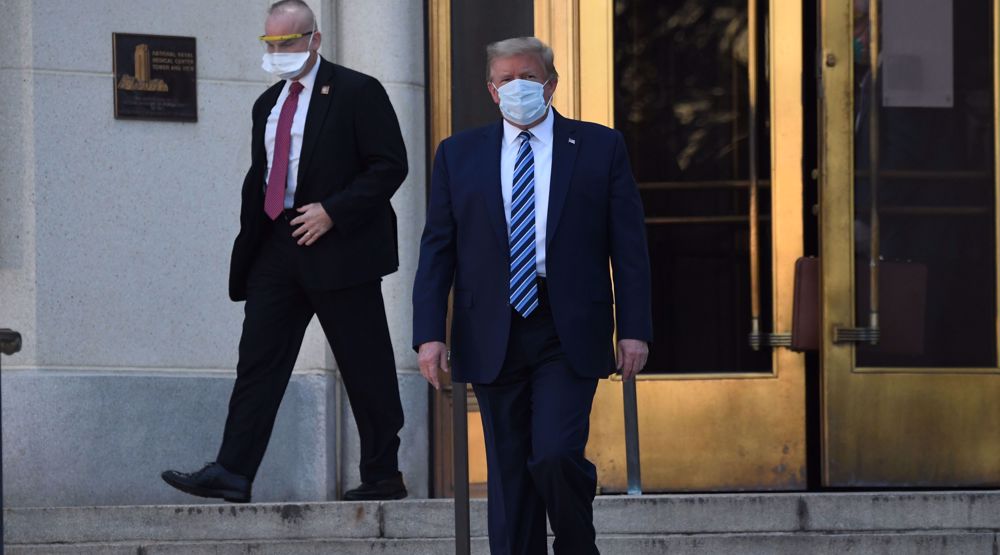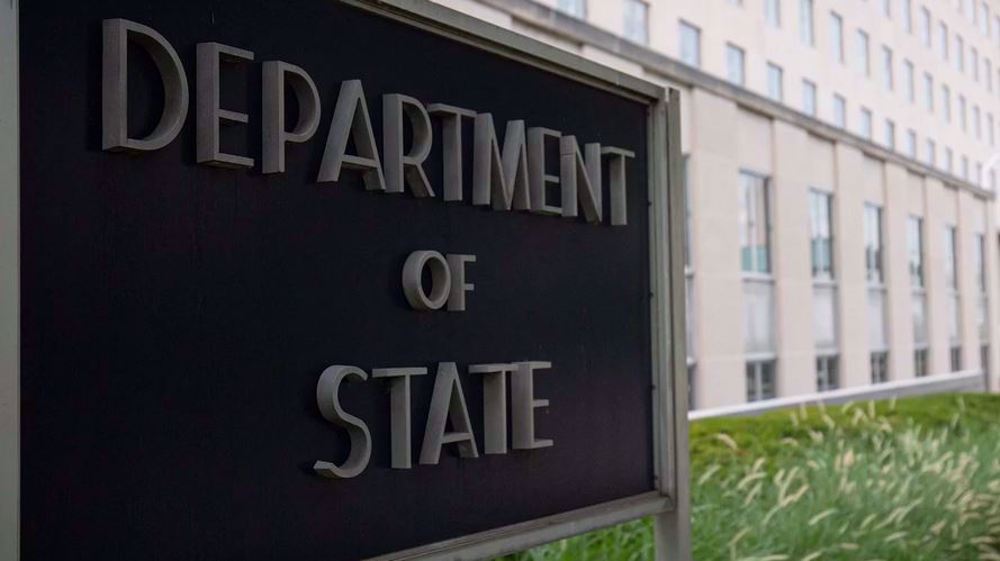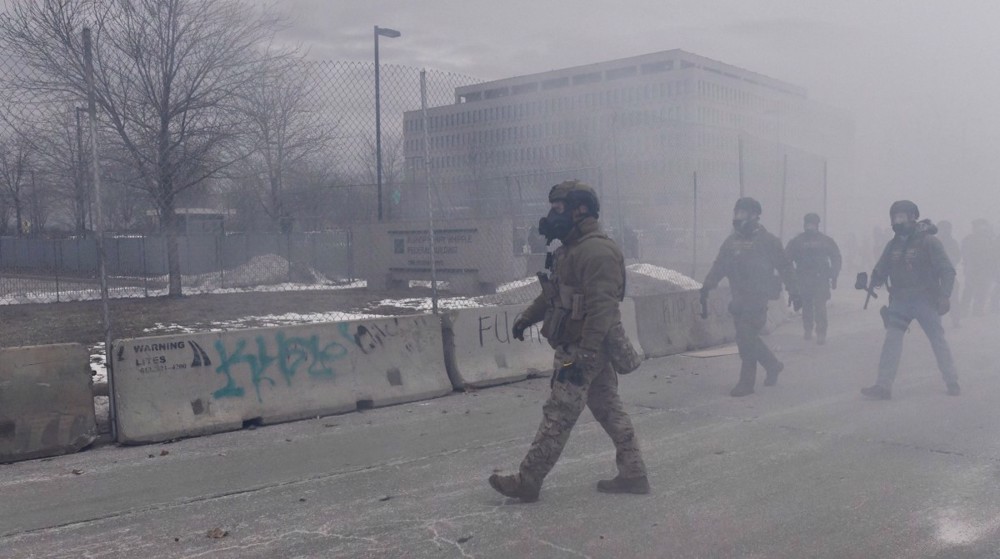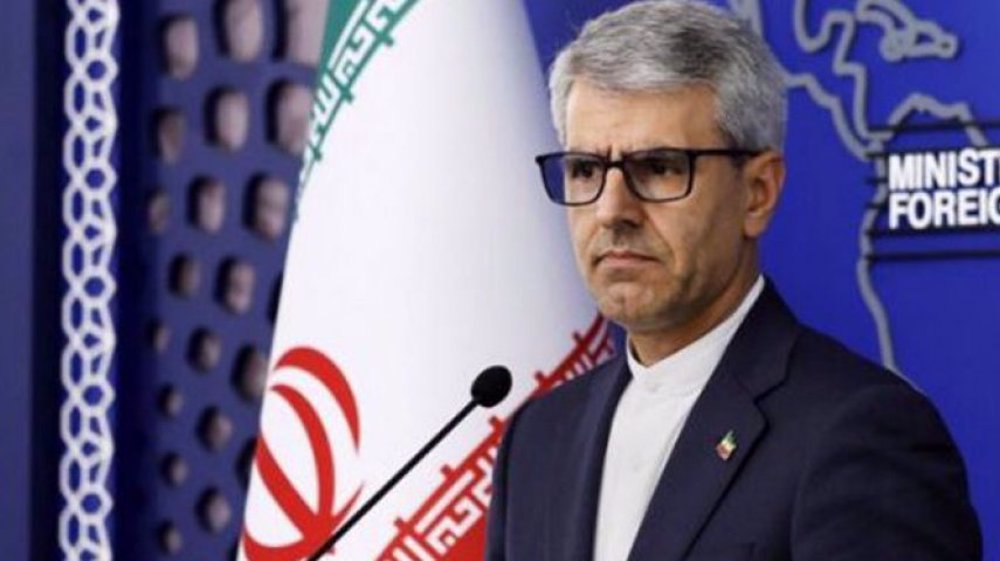Trump leaves Walter Reed despite coronavirus infection
US President Donald Trump has left the Walter Reed National Military Medical Center after spending three days there for treatment of the coronavirus.
Now with mask off, Trump stands on White House balcony to watch Marine One depart pic.twitter.com/WnTSP3UEgc
— Jonathan Lemire (@JonLemire) October 5, 2020
The patient walked out of the hospital just after 6:30 pm on Monday evening, while ignoring questions from the reporters.
“Though he may not entirely be out of the woods yet, the team and I agree that all of our evaluations, and most importantly, his clinical status, support the president’s safe return home,” White House physician Sean Conley told reporters during a briefing outside the hospital in Bethesda, Maryland earlier in the day.
With some four weeks to go until the November 3 presidential election, Trump also said shortly before leaving that he would be on the campaign trail "soon."
“Don’t be afraid of covid. Don’t let it dominate your life. We have developed, under the Trump Administration, some really great drugs & knowledge. I feel better than I did 20 years ago!” the president wrote on Twitter.
The president has so far received supplemental oxygen on two occasions, in which he experienced transient drops in his oxygen levels.
Meanwhile, Health and Human Services Secretary Alex Azar and Scott Atlas, an adviser to Trump, held a meeting with a group of doctors who are proponents of the controversial “herd immunity” approach to the pandemic.
Martin Kulldorff, a professor of at Harvard, Sunetra Gupta, a professor at Oxford, and Jay Bhattacharya, a professor at Stanford, are all epidemiologists and study infectious diseases.
“We had a very good discussion. He asked many questions and we put forth our case, to protect the people who are vulnerable and the idea of trying to do lockdowns to eliminate this disease is not realistic,” Kulldorff said.
According to Gupta, “The alternative [to herd immunity], which is to keep suppressing the virus, comes at an enormous cost to the poor and to the young and not just in this country, but worldwide.”
This is while William Hanage, an associate professor of epidemiology at Harvard, warned that the idea of allowing the virus to run its course could be dangerous.
“It’s quite dangerous, for multiple reasons,” he said. “If you do this, you’ll get more infections, more hospitalizations, and more deaths.”
As the president has fallen sick, the idea appears to be gaining momentum.
“Their targeted protection of the vulnerable and opening schools and society policy matches the policy of the President and what I have advised,” Atlas wrote.
Trump launches sweeping clemency offensive, pardoning allies, donors, repeat fraudsters
Iraqi army assumes full control of Ain al-Asad airbase after complete US withdrawal
VIDEO | Trump main culprit of acts of terror in Iran
Iran restores SMS access, eases curbs on domestic messengers
Hamas says Israeli army, settlers coordinating West Bank attacks
Israel says Trump's Gaza oversight panel 'contradicts its policy'
Iran reports record natural gas processing capacity
US judge bars federal agents from pepper spraying, arresting protesters in Minnesota















 This makes it easy to access the Press TV website
This makes it easy to access the Press TV website